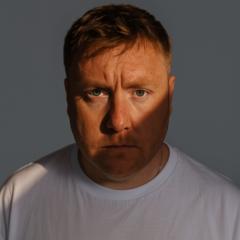Activity
Mon
Wed
Fri
Sun
Oct
Nov
Dec
Jan
Feb
Mar
Apr
May
Jun
Jul
Aug
Sep
What is this?
Less
More
Memberships
The Remade: Assembly
21 members • Free
7 contributions to The Remade: Assembly
What Light Might This Darkness Be Making Possible?
“In order for the light to shine so brightly, the darkness must be present.” — Sir Francis Bacon We think hard times are interruptions. But sometimes, they’re the backdrop that makes the next version of us possible. --- Your action today: If you’re in a hard season, ask: “What quality might this be growing in me that couldn’t grow any other way?” Post your answer in the comments — even if it’s just a guess.
Doubt disguising as certainty
A few days ago I listened to a speech of a Buddhist teacher who spoke about doubt and aversion. He said that the most tricky form doubt shows itself is as some kind of certainty. If it doesn’t say “I’m not sure about this…” but dresses itself up as “this really isn’t for me”. I feel like I’ve certainly experienced this and wanted to share. Maybe it speaks to someone else, too.
Perfectionism Is a Trauma Response, Not a Personality Trait
If your brain believes: → "I can't finish this until it's perfect…" → "I can't rest until it's all done…" → "If I get it wrong, everything collapses…" That's not high standards. That’s **survival mode disguised as self-improvement**. Perfectionism is often what we learned when: - Praise was conditional - Mistakes got punished - Being seen as capable was the only way to feel safe But here's the truth: **The version of you who only feels safe by being flawless is exhausted.** Inside CORE, we built a ritual to release the nervous system pressure to be perfect — and to actually *finish things* without shame. You don’t need to do it right to move forward. You just need to do it.
3 likes • Aug 7
So true!! I wanted to share that I think improv comedy offers fascinating insights into dismantling perfectionism. The entire foundation of successful improv rests on embracing "mistakes" – yet beginners (myself included when I was starting out) are often paralysed by the fear of making the wrong move. They mistakenly believe the magic comes from conjuring brilliant ideas on the spot and being devastatingly clever and witty, when actually it emerges from building on each other's contributions one step at a time. The best scenes unfold through unexpected curveballs and reinterpretations that veer far from anyone's original intentions, essentially from "failure". Actually, "perfect" scenes are so lifeless and boring and incredibly unfunny – like watching a very careful game of ping-pong. Much of improv training deliberately cultivates an anti-perfectionist mindset. There's even an exercise where everyone shares something they messed up that week, and the group cheer wildly – literally rewiring our brains to celebrate rather than fear failure. While this might seem specific to comedy and collaborative scene-building, I think the principles translate beautifully to life itself. So much of what I consider magical or meaningful has sprung from "mistakes" and unexpected turns. The control I thought I had over my life seems largely illusory. When we participate wholeheartedly in life – prepared to "fail" in service of exploration and creativity – we often discover the most rewarding outcomes emerge not from rigid planning, but from our willingness to play, adapt, and build on whatever arises. As soon as this clicked for me, I thought, "Brilliant! I'll fail perfectly – I'm going to be the absolute champion of failure and get a gold star from the teacher for it!" So clearly, I still have some work to do!
Hedonism and Rebellion
My mother was severely overweight—technically obese—almost certainly due to unprocessed trauma. When I was little, my father would tell me, "If Mum doesn't lose weight, she's going to die." Both he and my grandmother insisted it was our collective responsibility—mine included—to force her to lose weight. At nine years old, I was making her go on runs with me, signing her up for fitness classes, and becoming obsessively controlling about food. Strangely, I never developed a traditional eating disorder, and I've never connected my eating patterns to my anxiety. But reflecting on this now, I realise I've never allowed myself to eat chips, ice cream, or anything "unhealthy" unless it was planned in advance—a birthday or special occasion—and even then, I'd feel terrible afterwards. This rigid control over food was actually my first attempt at managing anxiety, the earliest manifestation of what would become health anxiety. I don't know what it means to be spontaneous or give in to simple joy. There's this deep fear that any hedonism would spiral endlessly—that if I even dipped my toe into a carefree, happy-go-lucky approach to life or took the smallest risk, I'd be pulled into complete self-destruction. This fear of "complete self-annihilation" really captures how thoroughly I learned that letting go of control equals danger. It makes complete sense that a child who was told their parent's life depended on their vigilance would grow up feeling like relaxing that vigilance—even around something as simple as eating ice cream—could have catastrophic consequences. Logically, I know this isn't true, but the fear feels very real. This weirdly connects to something else I've been thinking about: a counselor's analysis of The Breakfast Club on YouTube that stuck with me. The Bender character—problematic as he is from a modern perspective regarding consent—was interpreted as representing healthy rebellion. His influence was ultimately positive because the other characters needed to integrate that rebellious energy into themselves.
1 like • Aug 7
@Simone Mir Oh wow, this sounds so familiar - your poor mum! It's heartbreaking, isn't it? I always felt terrible for my mum because her addiction was impossible to hide in any situation. She was actually passed over for a promotion at work because of it (completely illegal!). The judgment was relentless. Even this year for her birthday, my dad said, why don't we sign her up for some programme where she'd only eat special diabetic yogurts for a year (despite not being diabetic). Because, Dad, that would literally be the worst birthday gift imaginable. 🤦♀️ I'm absolutely convinced as well that obesity has some sort of link to unprocessed trauma, so to be constantly bullied on top of that - awful!
1 like • Aug 7
@Danny O'Keeffe Thank you so much for this - it's incredibly helpful! I think reframing rebellion is exactly what I needed to hear. I've been getting stuck thinking rebellion means getting a tattoo on my arse or riding a Harley topless, and then thinking honestly, I don't think I would enjoy doing either of those things 😂. But yes, I realise I've been thinking about rebellion too literally. Your perspective - that it's about choosing joy and authenticity over safety - really resonates with me. That's such a powerful way to frame it. I'm going to reflect on what my inner child was never allowed to do or be ❤️
Breaking the ice with an important question
Hello Remade folks! I have a question... I am currently in my favourite place on earth. The weather is beautiful. I have just eaten tasty food which I didn't have to cook myself. I didn't overfill myself, and I'm definetly not hungry. I have enjoyed the sun and the sea prior to that. I am laying in the shade with a thin blanket, in the light breeze with the sun warming only my feet. Objectively, heaven on earth. However, I feel frustrated. I thought this would make me calm and that I would enjoy this. I know I'm so lucky to be able to be here and have all of this, but I don't feel it. I'm just..here. And somehow, empty. I feel horrible because of this. Like an ungrateful, spoiled 💩 I am aware that I am going through what seems to be a depressive episode. It is mixed with anxiety for sure, but the depression is at the forefront this time. I don't really know what to do about it. And IF I should do anything about it. It just...sucks. This is a good question. When anxiety arises, i was taught the approach should be 'no response' (acknowledge and continue what you were doing), what about depression? My background story is that I was going through anxiety for years and somewhere along the way that anxiety morphed into depression. It is almost as if when anxiety is high, the depression isow and vice versa. Now, through the years I learned a lot of tools/techniques for anxiety, but im not sure what about depression. I'm aware that they could be the symptoms stemming from the same core problem, I'm just not sure what to do 💁♀️ Any suggestions?
4 likes • Aug 4
Hey @Mia Agapito, I really relate to this again. Every time you write, it takes me right back to where I was this time last year. I remember how the anxiety eventually gave way to this massive wall of depression, which completely freaked me out. I'd never experienced depression or depressive feelings before, and it felt genuinely frightening because all my coping mechanisms were built around being addicted to stress. These depressive feelings felt completely foreign and threatening. I have this vivid memory of going birdwatching with my dad and feeling this crushing weight of emptiness. Beauty that would normally set me alight left me completely unmoved, and I spiraled about that too. Looking back, I remember a couple of things that helped. There was a Dennis Simsek video explaining that depression is actually a sign of progress—something about it being the void from which you start building a new life. And a Therapy in a Nutshell video that reframed depression as actually a really smart response to circumstances. That perspective shift was huge for me—recognising that this part was still trying to protect me, just like anxiety, but its version of reality wasn't true. https://www.youtube.com/watch?v=UVVWcfnnlmU At the time, my situation felt hopeless (even though it wasn't), so not hoping or feeling anything was my nervous system's way of protecting me from crushing disappointment or wasting energy on things that seemed doomed to fail. I treated it the same way I'd learned to handle anxiety: I befriended the sensations. The crushing weight in my stomach, the lead feeling in my limbs—I'd touch those parts of my body and say "it's safe to feel this," then find parts that didn't carry that weight and remind myself these feelings were only part of me. I kept gently showing up to things I knew were good for my soul, putting zero pressure on myself to feel anything while I was there. Recognising that these feelings wouldn't annihilate me or last forever, and that they weren't objectively describing reality, helped me allow them to be there. Understanding they came from a place of protection—from a part that loved me—allowed me to gently participate in life until those feelings moved through.
1-7 of 7
@lottie-field-4507
Hi, my name is Lottie. I'm a comedian and I developed health anxiety after university.
Active 36d ago
Joined Aug 4, 2025



